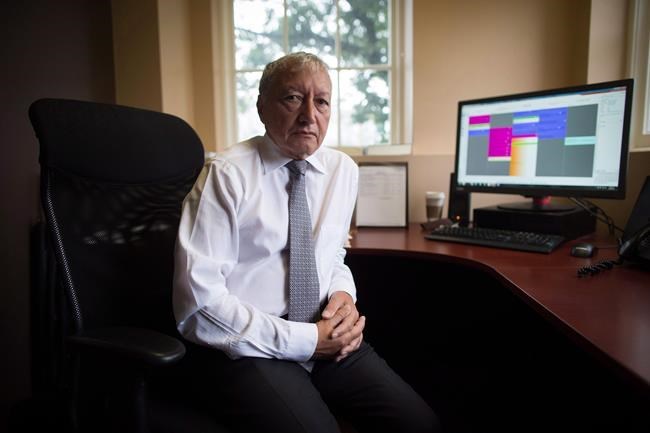VANCOUVER — A legal challenge by the owner of a private clinic providing scheduled surgery for "affluent" patients should be denied because it is based on a flawed constitutional argument, a lawyer for the B.C. government says.
Jonathan Penner said Tuesday that Dr. Brian Day's bid to have the province strike down provisions of the Medicare Protection Act prohibiting double billing amounts to an "unlawful business model."
Penner told B.C. Supreme Court Justice John Steeves that Day's legal team has called the province's position shocking, adding that's based on a disregard for patients who can't afford private care at clinics, such as the Cambie Surgery Centre, opened by Day in 1996.
"In my submission what truly is shocking is this complete and utter disregard for the situation of anyone who is not in a position to come up with the funds to pay them to provide rapid surgical services," he said.
"They seek the privileged, those few privileged British Columbians who require scheduled surgery and have the resources to pay for private care," Penner said, adding "ordinary" people would have less access to care under a two-tier system Day has proposed.
The frail and elderly, patients with complex conditions, and those with severe mental illness and/or substance-use issues would be particularly disadvantaged because regulating a public-private system that could invite American-style insurers would come at a high cost and take money away from public health care, he said.
Wait lists for patients requiring palliative care as well as emergency and urgent services would also increase under such a system because doctors, anesthesiologists and nurses would be lured to clinics allowing them to earn money in both the public and private systems, he said.
Penner suggested physicians should no longer be enrolled in the Medical Services Plan if they choose to work in for-profit clinics.
Day, an orthopedic surgeon, has hinged his decade-long legal battle on arguments around patients having a right to pay for services if wait times in the public system are too long.
He has maintained that four plaintiff patients have been deprived of life, liberty and security under the Charter of Rights and Freedoms after suffering harms from waiting for surgery in the public system before they sought care at his clinic.
Penner called that argument "political theatre" and said Day's legal team has failed to identify whether any harms the patients may have endured were related to wait times in the public system.
Hanna Davis, a lawyer for the federal government, said Day's assertion that private health insurance could enable patients to access care at clinics like his would not apply to people who can't afford premiums, especially if they have pre-existing conditions.
The same applies for employer-based insurance, which also would not be available to those who are retired, unemployed or not provided with such options at their workplace, she said.
Regardless, the underlying principle of the Canada Health Act is based on access to care based on need, not ability to pay, Davis said.
A two-tier scheme would weaken the public system, which would be left to deal with more complicated health-care cases while private clinics would take on easier surgeries as part of what is referred to as "cream skimming," she said.
The Canada Health Act does not explicitly require provinces to prohibit duplicative private insurance as a condition of federal health funding, she said.
"However, all Canadian provinces have either voluntarily prohibited or effectively restricted private health duplicative insurance as one of the main safeguards to protect the integrity of the public health-care system."
Requiring people to have their own insurance would amount to discrimination against those who wouldn't be eligible for it, Davis said.
When Day opened his clinic, he said surgeons who worked in hospitals were not getting enough operating-room time and profit was not his motive.
However, the facility has been operating since 2003 in violation of unproclaimed provisions of the provincial Medicare Protection Act.
Health Minister Adrian Dix announced in 2018 that the government would begin to fine doctors $10,000 for a first offence if they charged patients for publicly available services and that the "don't ask, don't tell" approach that allowed private-clinic surgeries and diagnostic tests to continue would no longer be permitted.
Day won an injunction at the B.C. Supreme Court that ordered the government not to enforce that section of the act until his constitutional challenge is dealt with.
This report by The Canadian Press was first published Feb. 25, 2020.
Camille Bains, The Canadian Press




